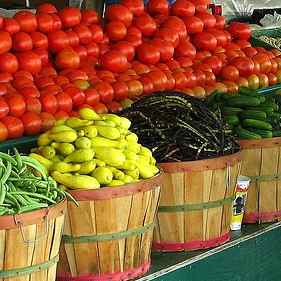Aug 6, 2018NRCS partners in California receive $1.3M to study soil health
Two California organizations and one national organization have been selected to receive a combined $1.3 million through the USDA Natural Resources Conservation Service (NRCS) nationally-awarded Conservation Innovation Grants (CIG). All three projects support soil health innovations.
“These grants will help spur creativity and problem-solving on California’s farms and ranches,” said Jeff White, NRCS acting state conservationist in California. “The projects continue California’s commitment to soil health and its management across the landscape.”
CIG grants awarded are as follows:
- The Napa County Resource Conservation District (RCD) will promote soil health assessments and field trial monitoring to support soil health management system adoption in California’s North Coast vineyards.
- The University of California Regents will work with growers to incorporate highly productive organic no-till vegetable cropping systems in California.
- The American Farmland Trust will work with farmers in California and four other states to accelerate soil health adoption by quantifying economic and environmental outcomes and overcoming barriers on rented land.
“This is indeed very exciting and a huge breakthrough for the RCDs in the Northern San Francisco Bay Area to expand and enhance our soil health programs,” said Charles Schembre, vineyard conservation coordinator for the Napa County RCD. “On behalf of Mendocino, Napa, and Sonoma County RCDs and our close partners, I would like to extend are greatest gratitude to the USDA for recognizing and supporting our work and the agricultural industries in Northern California.
“We’re very excited about this new CIG Project that will bring together six outstanding organic vegetable farmers in California to work together to design and refine new, reduced disturbance no-till systems at their farms,” said Jeff Mitchell of UC Davis Extension. “The project also has research partners at UC Davis, Chico State and Fresno State who’ll be working with the farmers to help them to test the new production paradigms.”
Here is more information from the NRCS on the grantees:
– Project Lead: The Regents of the University of California
Project Location: California
Funding Amount: $381,474
Award Category: Organic Agriculture Systems
Little information on the benefits of reduced disturbance practices is available in California for organic production systems. The Regents of the University of California propose to increase soil health and resilience in organic vegetable production systems in California by demonstrating systems-oriented reduced disturbance approaches that have been shown to have significant conservation benefit in other regions. The project will demonstrate these innovative practices and increase their adoption through a process of on-farm discovery, a connected farmer network to share knowledge, and a targeted emphasis on specific questions or constraints that stakeholder farmers and supporters recognize as barriers to adoption.
– Project Lead: Napa County Resource Conservation District
Project Location: California
Funding Amount: $389,432
Award Category: Soil Health
Napa County Resource Conservation District proposes to develop an assessment database to evaluate measured soil health indicators, management practices and regionally specific parameters in order to assist in making interpretations. The project team will develop a regionally specific tool to aid in the interpretation of soil health assessment data for CA North Coast vineyards. The project aims to increase producer knowledge about vineyard specific soil health management systems leading to increased adoption of soil health practices by producers.
– Project Lead: American Farmland Trust
Project Location: California, Illinois, Ohio, New York, Virginia
Funding Amount: $509,533
Award Category: Soil Health
American Farmland Trust proposes to accelerate adoption of Soil Health Management Systems (SHMS) on land that farmers own and land they rent by: 1) quantifying the economic, soil health, water quality, and greenhouse gas outcomes experienced by farmers who have successfully adopted SHMS, 2) publishing those findings in short, compelling case studies, 3) sharing the case studies with farmers and landowners who are curious about implementing SHMS, and 4) providing tailored technical and financial assistance that may be needed to adopt and successfully maintain SHMS.
NRCS administers CIG as part of the Environmental Quality Incentives Program. NRCS uses CIG to invest in innovative conservation technologies and approaches with the goal of wide-scale adoption to address a wide range of natural resource issues.
NRCS has provided leadership in a partnership effort to help America’s private landowners and managers conserve their soil, water and other natural resources since 1935. For more information on NRCS, visit www.nrcs.usda.gov.

















